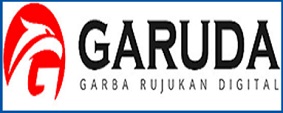Efektivitas Penggunaan Metode Penyuluhan Sokratik dalam Peningkatan Pengetahuan Tentang Relaksasi Autogenic Pada Keluarga Pasien dengan Hipertensi di Wilayah Kerja Puskesmas Mekarmukti
DOI:
https://doi.org/10.31004/jn.v8i1.21117Abstract
The incidence of hypertension in Indonesia in the population aged >18 years is 34.1%, an increase of 8.3% from the prevalence in 2013. West Java Province ranks second as the province with the highest cases of hypertension in Indonesia, namely 39.6% after Kalimantan. South, namely 44.1%. Hypertension is a condition where a person experiences an increase in blood pressure above normal which results in an increase in morbidity and mortality. When blood pressure increases, hypertensive sufferers can experience headaches. To overcome pain, non-pharmacological therapy is needed in the form of autogenic relaxation. Autogenic relaxation helps individuals to be able to control several body functions such as blood pressure, heart rate, and blood flow. To get optimal results, autogenic relaxation must be carried out regularly 2-3 times a day, and the family as the people closest to the patient have an important role in providing motivation and support to the patient in carrying out this relaxation therapy. Families need to be involved in managing hypertension treatment. Family support itself has the basis of inhibiting the progression of hypertension and can support the success of hypertension therapy. The family has a role in the management of the patient's illness, starting from daily food, physical activity and emotional support which helps the patient to deal with the stress caused by the illness. Counseling is an activity or effort to convey health messages to the community, groups or individuals with the hope that with the message they can gain better knowledge about health, which ultimately can change their behavior. There are two methods in health education, namely the didactic and socratic methods. The socratic counseling method is a method that gives participants the opportunity to actively participate in expressing their opinions. Families of patients with hypertension have the opportunity to be interactive with researchers during research activities. The aim of this research is to determine the effectiveness of using the socratic counseling method in increasing knowledge about autogenic relaxation in the families of patients with hypertension. The sample in this study was the entire family of patients with hypertension in the working area of ??the Mekarmukti Community Health Center who were active in Posbindu Seroja activities, totaling 30 people. The research design used was a one-group pretest-posttest design. The research results showed that the mean pretest score was 83.25 and the mean posttest score was 98.50. From this research it can be concluded that the socratic counseling method is effective in increasing respondents' knowledge about autogenic relaxation in the working area of ??the Mekarmukti Health Center. So it is recommended for Community Health Centers to use the socratic counseling method as a method of providing autegenic relaxation counseling for families of patients with hypertension.Downloads
Published
2024-04-30
How to Cite
Saputra, S. . (2024). Efektivitas Penggunaan Metode Penyuluhan Sokratik dalam Peningkatan Pengetahuan Tentang Relaksasi Autogenic Pada Keluarga Pasien dengan Hipertensi di Wilayah Kerja Puskesmas Mekarmukti. Jurnal Ners, 8(1), 690–695. https://doi.org/10.31004/jn.v8i1.21117
Issue
Section
Articles
License
Copyright (c) 2024 Jurnal Ners

This work is licensed under a Creative Commons Attribution-ShareAlike 4.0 International License.
Authors who publish with this journal agree to the following terms: Authors retain copyright and grant the journal right of first publication with the work simultaneously licensed under a Creative Commons Attribution-ShareAlike 4.0 International License that allows others to share the work with an acknowledgement of the works authorship and initial publication in this journal. Authors are able to enter into separate, additional contractual arrangements for the non-exclusive distribution of the journals published version of the work (e.g., post it to an institutional repository or publish it in a book), with an acknowledgement of its initial publication in this journal. Authors are permitted and encouraged to post their work online (e.g., in institutional repositories or on their website) prior to and during the submission process, as it can lead to productive exchanges, as well as earlier and greater citation of published work (See The Effect of Open Access).







